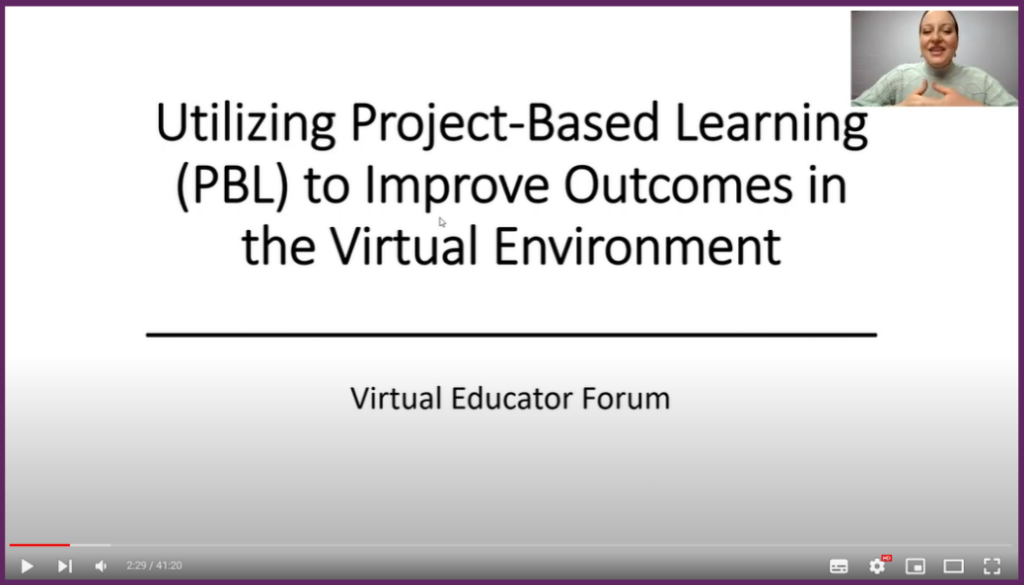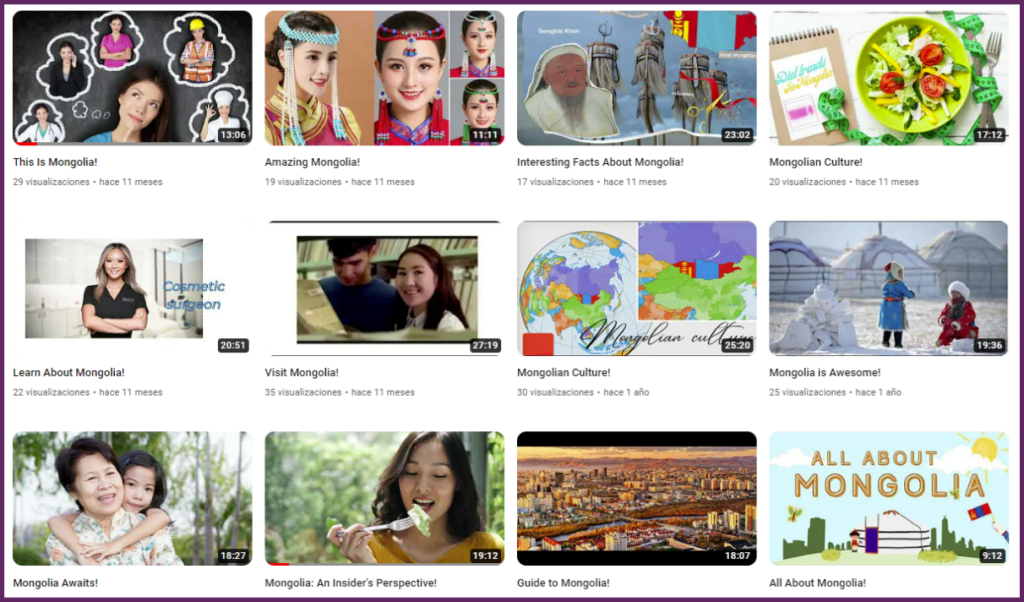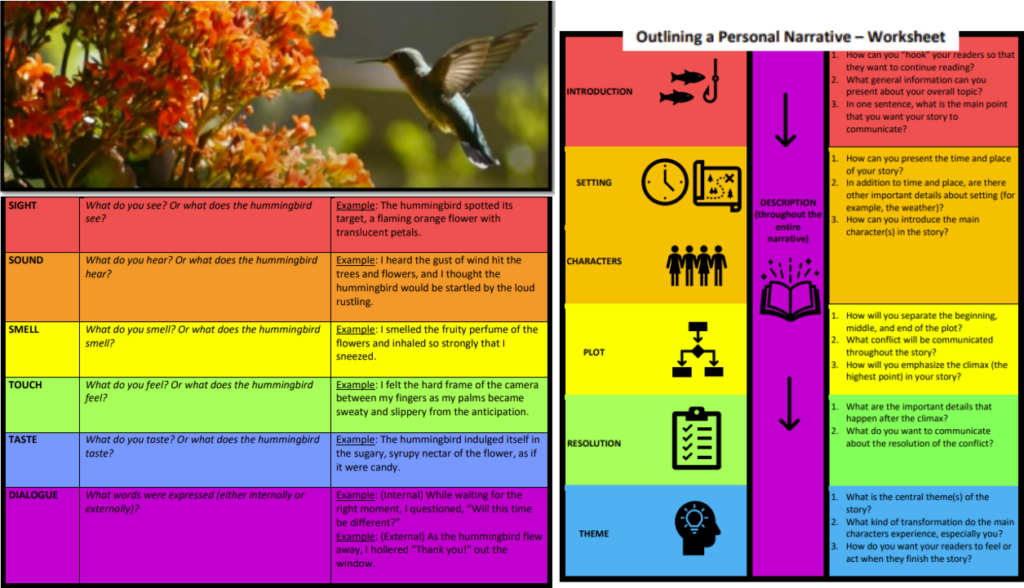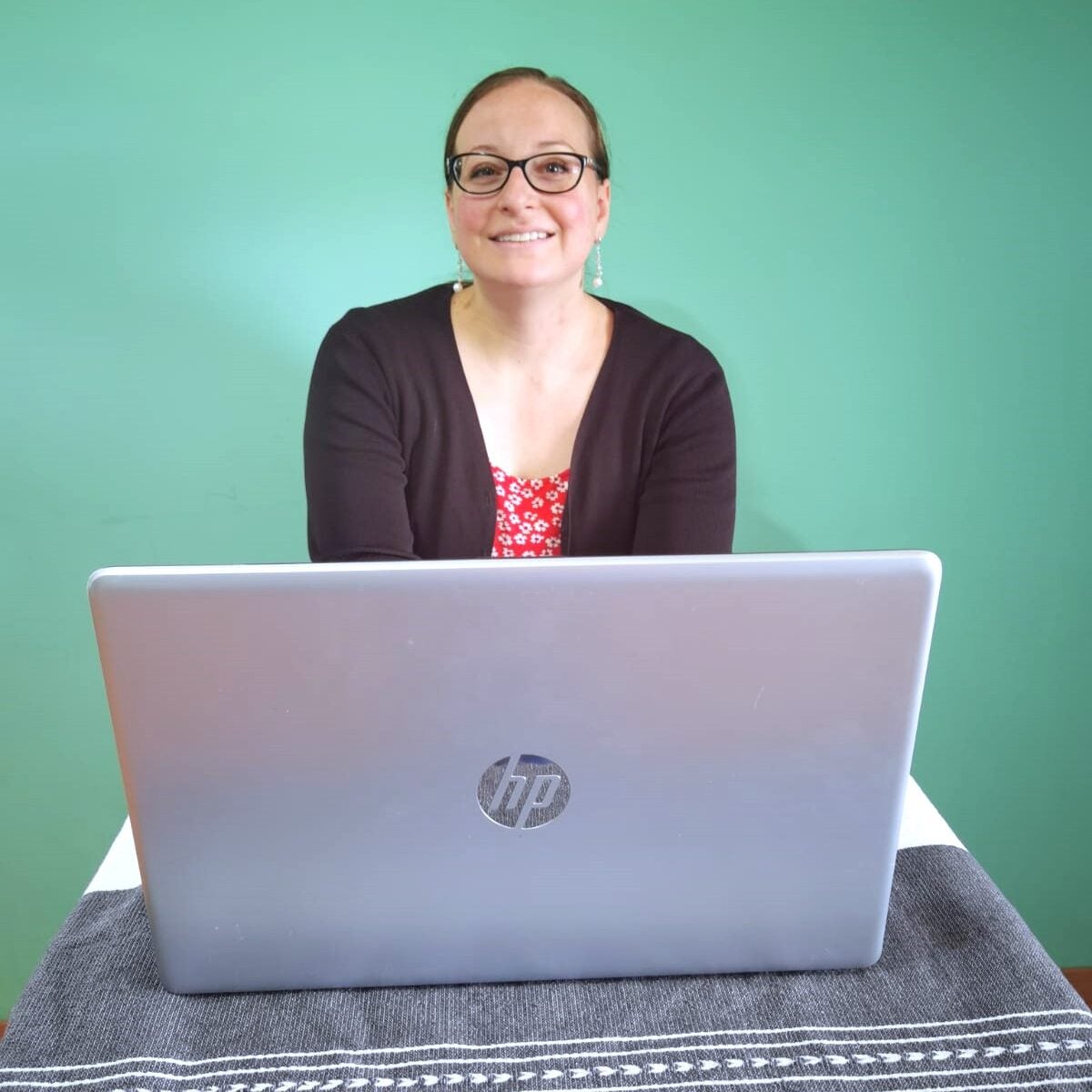In each location, I implemented my favorite methodology, project-based learning.
Ashley Stamper is an ardent advocate and practitioner of project-based learning (PBL). Over two years and three projects, Stamper used the structured approach of PBL as the foundation of her three Virtual English Language Educator projects in three world regions. PBL provided the consistency that was key to guiding her students through their course objectives, as well as opportunities for cultural exchange and exploration. “I am very passionate about project-based learning in online contexts because it encourages student engagement and meaningful learning while allowing students to develop important language skills and hone their abilities in communication, creativity, critical thinking, and collaboration,” she offers.
To set the tone, Stamper starts each PBL project with a launch day, where the assignment is introduced through a high-interest activity, and eventually concludes the project with each learner publishing their own finished product. At the National University of Mongolia, Stamper’s students completed a Welcome to Mongolia project where they were able to work online in teams to script, storyboard, record, and edit a series of videos that were ultimately published on YouTube. Some of her students plan to work in hospitality services after their graduation, and this project-based work has given them opportunities to use the language needed in that industry.
Building a Professional Portfolio
I believe that my students understand that what I teach has real-world value and that I am committed to their learning process, both inside and outside the classroom.
On another project in the Palestinian Territories, Stamper workshopped several class projects with a focus on storytelling through personal narratives. Utilizing blogging and podcasting, university students were able to share personal narratives as well as the oral histories of older generations and elders while also letting their own voices be heard. And other students were able to build a digital portfolio to share with future employers that included a collection of professional writing samples.
Embracing Cultural Exchange
I made sure to utilize the virtual environment to create opportunities for cultural exchange.
Although working online from home minimizes the difficulty in adapting to a new environment, navigating the unique characteristics of a virtual project presents its own set of challenges. With a short-term project, there are high expectations and little time to waste. In order to make a connection with her students, Stamper structures lessons around discussions focusing on cultural exploration and exchange, which helps to build rapport in the classroom and makes the curriculum more approachable. At times she accomplishes this through direct instruction, such as sharing U.S-American idioms with her classes, but often she asks students to explore and consider their own context and culture when producing more extensive work. During her first virtual project, an academic writing course with Brazilian faculty, participants conducted research on aspects of culture and personal interest, such as oral narratives passed from generation to generation in rural communities of Brazil. “I love to learn about other people’s countries and lives, and I believe people like to talk about these things,” she reflects. This exploratory practice would develop further with Stamper’s subsequent projects in Mongolia and the Palestinian Territories.
Teaching Globally Online
Prior to 2023, Ashley Stamper had acquired significant professional experience collaborating with a variety of higher education and adult education institutions in the U.S. and abroad and was already comfortable teaching in an online-classroom environment. She completed her first virtual project with English Language Programs in 2021-2022 during a transitional year when teaching online was still new to many. She worked in collaboration with the Regional University of Cariri in Brazil on an online teaching project to strengthen the research and writing skills of faculty.
Then in early 2022, Stamper was offered a second online teaching project as part of the then new Virtual English Language Educator Program, working primarily with teacher trainees in Mongolia. This was followed later that year by a project in the Palestinian Territories—teaching English to university students and professionals—which concluded this past March.
Making a Mark
When reflecting on all of her completed Virtual Educator projects, she is very proud of her contributions at An-Najah National University in Nablus, the Palestinian Territories, preparing students to use English in their professional lives. Her students honed their professional skills writing cover letters and resumes while preparing a portfolio for future employers. The real-world application of the material was palpable.
Although the project has since concluded, the relationships built during the course continue. Just recently, Stamper was contacted by a student requesting feedback on a piece of writing. “The fact that these students feel comfortable asking me for help even after a course has ended makes me realize they trust me as a person, value my opinion, and believe that I am invested in their progress in the real world, even if I am not their current teacher,” she says.
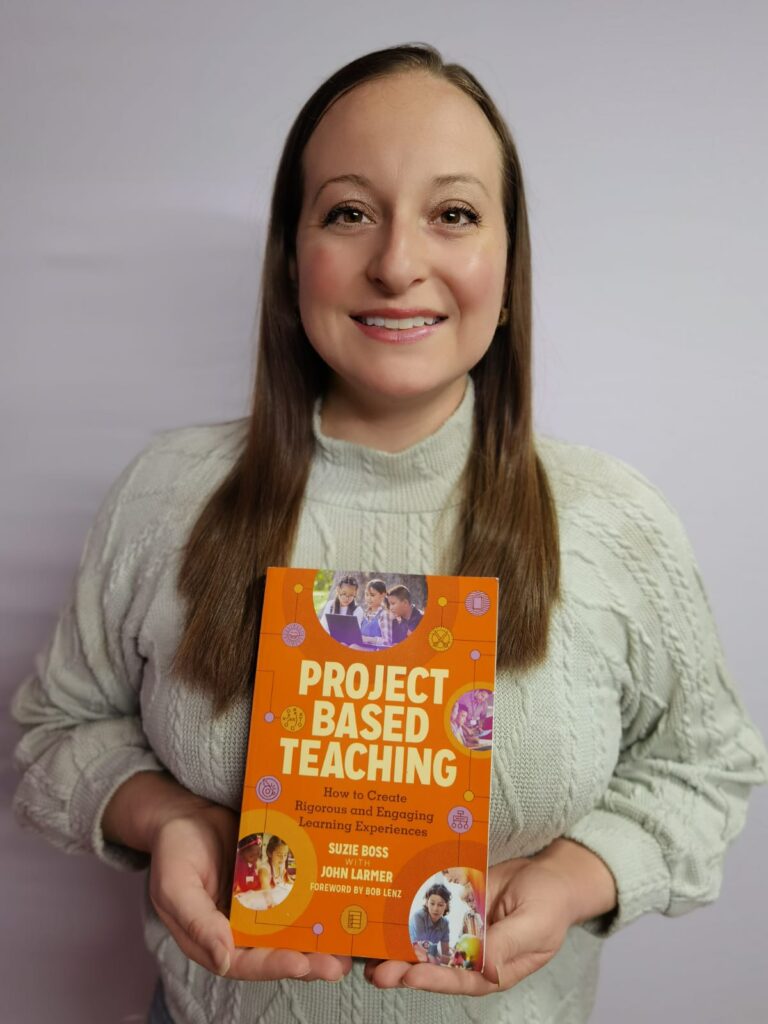
Ashley Stamper holds a master’s degree in English Composition and Rhetoric with a graduate-level certification in TEFL as well as a bachelor’s degree in English with a minor in Spanish. She has been a professional educator for more than a decade and specializes in English language teaching, academic research writing, teacher education, and online learning. Throughout her professional journey in higher education and adult education, she has had the privilege of working with students and teachers from various places, including the U.S., Mexico, China, Guatemala, Brazil, Mongolia, and the Palestinian Territories. Most recently, Stamper has served as a Virtual Educator for the U.S. Department of State’s English Language Programs. Stamper also teaches in virtual roles for a variety of universities and seminaries. Additionally, she serves as an online writing center coordinator and a TESL trainer. Stamper also enjoys speaking about her experiences as well as contributing as a member of professional organizations, including TESOL International Association and the Christian English Language Educators Association (CELEA).

